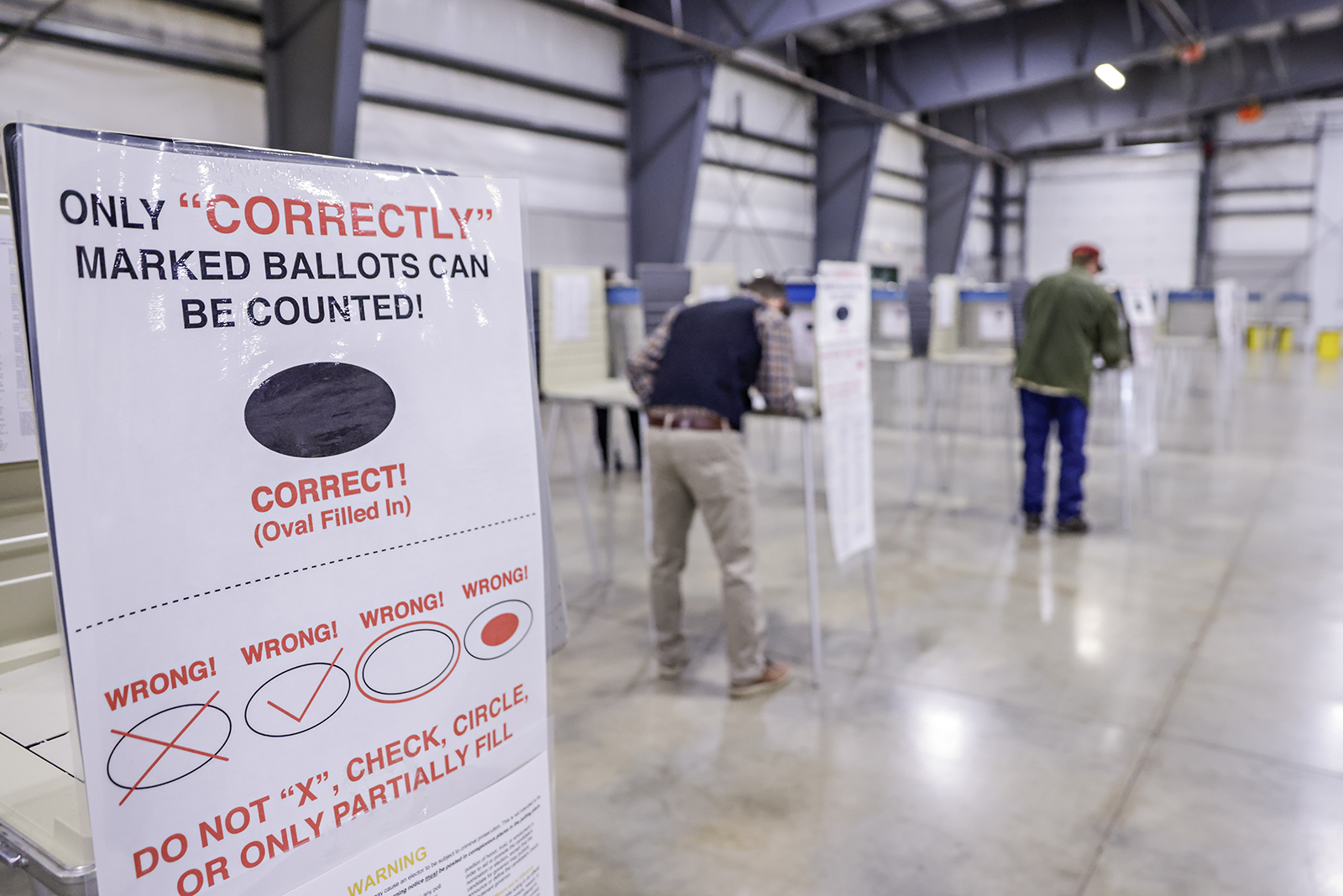ACLU Plans to Spend $1.3M to Educate Montana Voters About State Supreme Court Candidates
The expenditure comes after Republicans tried unsuccessfully in 2022 to unseat a justice by making an unprecedented partisan endorsement of her challenger
By Associated Press
HELENA – The American Civil Liberties Union plans to spend $1.3 million on campaign advertising to educate Montana voters about where state Supreme Court candidates stand on abortion and other civil rights issues with a measure constitutionally protecting protect abortion access also on the ballot.
The expenditure comes after Republicans tried unsuccessfully in 2022 to unseat a justice by making an unprecedented partisan endorsement of her challenger. GOP lawmakers also argue that the Supreme Court has been legislating from the bench in blocking laws to restrict abortion access or make it more difficult to vote.
“With politicians passing increasingly extreme laws, including abortion restrictions and bans, voters have the opportunity to elect justices who will protect fundamental rights in the state from these attacks,” the national ACLU and the ACLU of Montana said in a statement Thursday.
State Supreme Court candidates cannot seek, accept or use partisan endorsements. The ACLU of Montana said it was not endorsing any candidates.
“From abortion to marriage equality and Indigenous voting rights, the people we entrust with seats on the Supreme Court of Montana will play a critical role in determining whether we keep the rights Montanans value or whether politicians will be allowed to take away our freedom,” Akilah Deernose, the group’s executive director, said in a statement.
The ACLU wants to make sure voters know where Supreme Court candidates stand on those issues “so that they can cast an informed ballot this November,” Deernose said.
The $1.3 million is the most the ACLU has spent on a Montana election, spokesperson Andrew Everett said. The ACLU is also spending money on Supreme Court races in Arizona, Michigan, Ohio and North Carolina.
Money has increasingly poured into state Supreme Court races in recent years, especially after the U.S. Supreme Court overturned Roe v. Wade in 2022 and sent the abortion issue back to states, said Mike Milov-Cordoba of the Brennan Center for Justice.
Voters generally don’t have “strong preconceptions” of candidates in Supreme Court races, so the ad buy is “potentially significant,” he said.
Total spending on two Montana Supreme Court races in 2022 was a record $4.6 million, including $500,000 by the state Republican Party, according to the Brennan Center.
Milov-Cordoba said he wouldn’t be surprised to see similar spending this year, “especially given the conservatives’ frustration with the Montana Supreme Court pushing back on unconstitutional laws.”
The ACLU ads and mailers note that chief justice candidate Jerry Lynch and associate justice candidate Katherine Bidegaray agree with the analysis in a 1999 Montana Supreme Court ruling that found the state’s constitutional right to privacy protects the right to a pre-viability abortion from the provider of the patient’s choice.
Chief justice candidate Cory Swanson said it was not appropriate for him to comment on a case that may come before the court in the future, and associate justice candidate Dan Wilson did not respond to a survey sent out by the ACLU of Montana, the organization said.
A campaign committee, Montanans for Fair and Impartial Courts, has reported spending just over $425,000 for television ads endorsing Lynch, state campaign finance reports indicate.
Montana voters are being asked this fall whether the 1999 Supreme Court ruling should be enshrined in the constitution.
Historically, conservatives have accounted for a far greater share of spending in state Supreme Court races, Milov-Cordoba said. But since Roe v. Wade was overturned, groups on the left have nearly equaled that nationwide.
While abortion is a major issue driving the increased spending, state Supreme Courts are also being asked to rule in cases involving partisan gerrymandering, voting rights and climate change, he said.
“So who sits on those courts is a high-stakes matter,” he said.